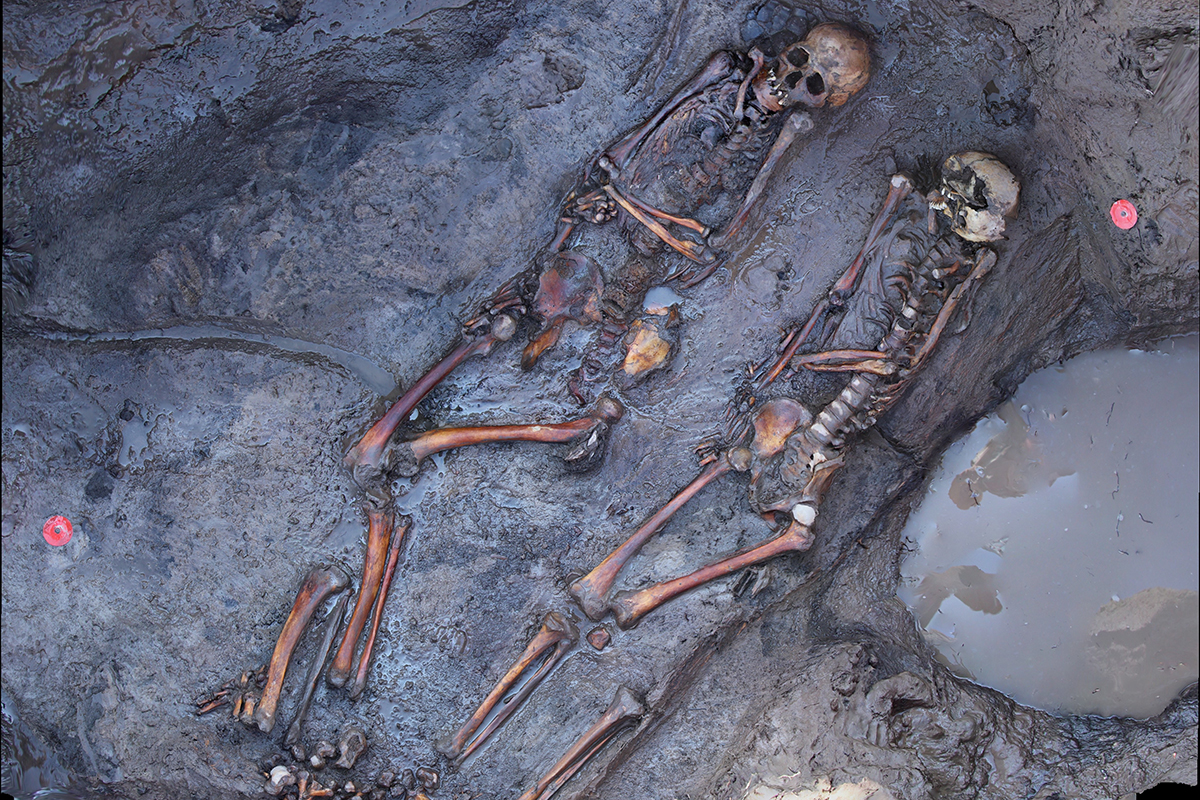
Extreme violence uncovered among Siberian nomadic cultures

Throat-slitting, scalping and general violence played a major role among Siberian steppe nomads, a gruesome analysis led by the University of Bern using 1,700-year-old skeletons has found.
In the first centuries AD, a period of political turmoil in Northern China and Southern Siberia, warlike nomads lived in the Republic of Tuva in southern Siberia. Historical documents refer to them as violent groups who often plundered adjacent areas of settled communities, but relatively little information is available about the degree and variability of violence in these communities.
Researchers led by Gino Caspari from the University of Bern have now provided new insights about the effects of political instability on the life of the people inhabiting Eastern Eurasia during the early centuries CE.
At the “Tunnug1” archaeological site, the Swiss-Russian team unveiled 87 skeletons representing both sexes and different age classes dating from the 2nd to 4th centuries AD. This was where the Siberian steppe nomads buried their dead near a former Scythian burial mound. Many of the bone remains showed traces of violence.
Political instability
The scientists carried out detailed analyses of the traumas to the bones. According to the results, a quarter of the victims died as a result of external violence, as the researchers report in the American Journal of Physical Anthropology.
Mostly the nomads died in close combat and in many cases they were beheaded. Among those killed were women and children. The researchers also succeeded in proving that some individuals may have been scalped and their necks cut on the battlefield.

“During the first centuries after Christ, the eastern steppe went through a period of political instability after the collapse of the Xiongnu steppe kingdom. This political change had a strong impact on the lives of the people,” said first author Marco Milella from the University of Bern.
He said it wasn’t possible for the moment to say whether the violent effects were caused by fights with enemies or by brutal rituals within the community.

More
Facing up to Switzerland’s Roman past

In compliance with the JTI standards
More: SWI swissinfo.ch certified by the Journalism Trust Initiative





























You can find an overview of ongoing debates with our journalists here . Please join us!
If you want to start a conversation about a topic raised in this article or want to report factual errors, email us at english@swissinfo.ch.